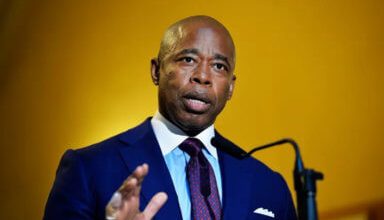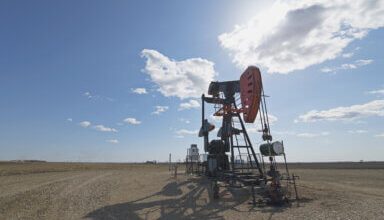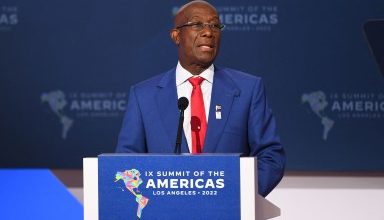Former Jamaican PM calls for stronger regional integration

Jamaica’s former, Prime Minister, PJ Patterson has called on the Development Bank of Latin and American and the Caribbean, which now has a $50 billion in financial assets, to help the Caribbean region achieve greater integration and sustainable development by facilitating finance through public-private partnerships. Patterson urged the leaders of the Caribbean to rise above their isolationism, let go of colonialism’s legacies and work together to realize the region’s immense potential.
Patterson made the call during a private Knowledge Forum held at the University of the West Indies, Regional Headquarters, at Mona in Kingston, Jamaica recently. The University of the West Indies (UWI) and the Development Bank of Latin American and the Caribbean (CAF) met to discuss and highlight the necessary steps needed to be taken by Caribbean leaders on ways to sustain and revitalize the Caribbean Region in the global economy.
Speaking to the group of Caribbean leaders was Jamaica’s former, Prime Minister, PJ Patterson, the statesman-in-resident at the PJ Patterson Institute for African Caribbean Public Advocacy. He made the speech to the group of experience leaders with a stern appeal for greater regional activity and integration. Patterson’s remarks echoed the insights of the experience audience as he recounted the history of the Caribbean with its lasting influence on the world, by claiming that “the formation of the Caribbean Community was the inaugural moment of the making of the modern world.”
He also urged the University of the West Indies to maintain its essential role in human resources development, working with local institutions.
Patterson assigned the University of the West Indies and the Development Bank of Latin America and the Caribbean to lead the push for further and stronger regional integration. The former prime minister urged CAF to expand its credit programs and rally support from its member countries to revitalize the Association of Caribbean States, seeing it as the cornerstone of a united Caribbean.
In addressing the matter of climate change and the sustainable development that comes with this change, Patterson emphasized the need to tackle the change. He expressed an image of a Caribbean that was vulnerable to unpredictable weather patterns, including longer dry season and rising temperatures. “All of this, which threatened the region’s rich biodiversity and marine life,” he commented. Patterson said the Caribbean’s susceptibility to natural catastrophes and the disproportionate impact, and its cultural fabric require more awareness and action on climate change financing for the region.
Patterson emphasized the need to strike a balance between environmental protection and economic growth, citing programs like Suriname’s fund for renewal energy as an example. “This is an effort to reduce the area’s dependency on fossil fuels,” he said making a clear point to the University of the West Indies and the Development Bank of Latin America and the Caribbean to support research and funding for renewable energy sources including solar and wind power.
In discussing the subject of transportation, Patterson said, that it was crucial to economic integration, noting how effective air and marine transportation were to achieving the economic potential of the Caribbean. He called on CAF to give regional transportation infrastructure investment top priority since it was an essential component of the Caribbean’s unity.
The former prime minister made a compelling request for the improvement of food security. Patterson endorsed the argument of Guyana’s president and joined the call for a reduction in the region of food importation by at least a 25 percent less, starting in 2025.





